Pointer Episode Rating Graph
Apr 2019 - present

Apr 2019 - present
5.5

| E1 | E2 | E3 | E4 | E5 | E6 | E7 | E8 | E9 | E10 | E11 | E12 | E13 | E14 | E15 | E16 | E17 | E18 | E19 | E20 | E21 | E22 | E23 | E24 | E25 | E26 | E27 | E28 | E29 | E30 | E31 | E32 | E33 | E34 | E35 | E36 | E37 | E38 | E39 | E40 | E41 | E42 | E43 | E44 | E45 | E46 | |
|---|---|---|---|---|---|---|---|---|---|---|---|---|---|---|---|---|---|---|---|---|---|---|---|---|---|---|---|---|---|---|---|---|---|---|---|---|---|---|---|---|---|---|---|---|---|---|
| S1 | ||||||||||||||||||||||||||||||||||||||||||||||
| S2 | ||||||||||||||||||||||||||||||||||||||||||||||
| S3 | ||||||||||||||||||||||||||||||||||||||||||||||
| S4 | ||||||||||||||||||||||||||||||||||||||||||||||
| S5 | ||||||||||||||||||||||||||||||||||||||||||||||
| S6 |
Browse episode ratings trends for Pointer. Simply click on the interactive rating graph to explore the best and worst of Pointer's 196 episodes.

S6 Ep3
8.0
25th Jan 2024
You can have fillers injected into your face to fill in lines and folds, or, for example, to give your lips more volume. More and more people are using them. Legally, only doctors are allowed to inject fillers. Yet you also see many beauticians without the correct papers, a lucrative business in fillers. This is not without risk, because if a filler is injected incorrectly, it can cause serious complications. Is there sufficient supervision of these actions?

S5 Ep31
8.0
1st Oct 2023
For many people, classical music has the image of decent, neat and perhaps a bit boring. Masterpieces are played by the best orchestras in centuries-old concert halls. From an early age, musicians put everything aside for music. The concert stage is the highest goal and an orchestral track is in demand. The competition is fierce: the Netherlands has nine symphonic orchestras and just as many conservatories. How safe is that sector for (young) musicians? How do orchestras and conservatories fulfill their responsibility in this area? Pointer conducted research into sexual misconduct and spoke to dozens of musicians from the Netherlands and abroad.
S1 Ep2
8.0
26th Jun 2019
In collaboration with Reporter Radio and Follow the Money, Pointer reveals that there are several healthcare institutions in the Netherlands that achieve extreme profits. The accounts look suspicious. How is it possible that these businesses earn so much money? Many of those companies are in home care. Is the care that these companies must deliver sufficient or is there the back of people who needed home care earned money?

S6 Ep29
7.5
3rd Oct 2024
Helping 1 million elderly people grow old happily, that was the mission of healthcare organization Zorg van Toen. If you are bankrupt, you may not be able to buy it. There are no warnings about the personal installation of the levers without any regulations. After the collapse, some very elderly residents, such as Simmy (88) and Theun (90), had to quickly look for another care institution. How is it said to have gone so wrong?

S6 Ep28
7.5
26th Sep 2024
Heavily armed soldiers from the Russian army sail through our waters. They keep a close eye on NATO countries on board research ships, which secretly engage in espionage and possible sabotage in the North Sea and Baltic Sea. Pointer starts an international investigation and discovers that the Russians are closer than we think.
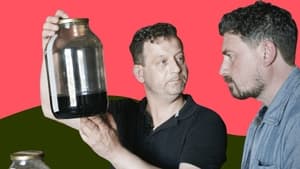
S6 Ep21
7.5
30th May 2024
Where do you put ten billion liters of manure? In the Netherlands we are suddenly faced with a surplus of 300,000 tankers full of manure. Due to new rules, farmers are much less allowed to use their own land, so they have to look for other solutions. But which ones are they? Processing is expensive, fermentation is limited. And so a hard, emotional battle arises for the last pieces of land in the Netherlands that we can fertilize, at high costs. Those who can no longer participate will perish. At the same time, other countries are eager for our manure. Why can't it go there?
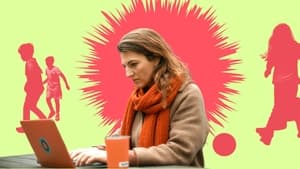
S6 Ep19
7.5
16th May 2024
Playing outside is perhaps more important than ever, especially now that children spend hours in front of a screen every day. But when they play, children make noise. And while one person finds loud children's voices and popping balls 'fun', another suffers from it in an increasingly busy Netherlands. Sometimes so much that municipalities find themselves in a difficult dilemma about what to do with leeway. Because which interest is more important: that of the child playing outside or that of the neighbor experiencing nuisance? How do municipalities deal with this? And is the balance between fun and rest still maintained?

S6 Ep17
7.5
2nd May 2024
Anyone who follows the Radio Genoa account on X (Twitter) is inundated with videos of black people committing violence or behaving inappropriately. Radio Genoa's message? "This happens when you let refugees into Europe." The videos have been viewed billions of times, also because followers retweet them so much. Among them, PVV leader Geert Wilders and Elon Musk, who bought Twitter and renamed it X. Since then, these types of extreme accounts that want to create fear and hatred for people with a migration background have grown strongly. We reveal who is behind this account and find out what the consequences are for society.

S6 Ep13
7.5
4th Apr 2024
High rent while your house is full of mold and vermin. Young tenants are often the victims of the overstressed rental market. The housing shortage is so great that landlords are asking exorbitant prices for houses. Sometimes up to half of your monthly income, while the home is in poor condition. What can you do then? The law states that tenants have the right to lower rent or improvements if a house is really bad. But what about this in practice? In the private rental sector you can only enforce this through the courts. An expensive route that few people dare to take. Are tenants footing the bill for the runaway housing market?
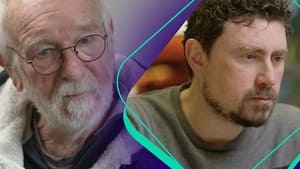
S6 Ep4
7.5
1st Feb 2024
In winter, many people like to light a crackling fire. Cozy right? But wood smoke regularly causes nuisance and can cause health problems, as is the case with Dirk. He experiences nuisance because local residents burn wood, it makes him short of breath and keeps him awake at night. If he reports it to the municipality, little happens. What can he do?
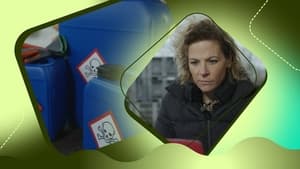
S6 Ep1
7.5
11th Jan 2024
Pointer investigates the power of the Brussels pesticide lobby. More and more scientists are concerned about the relationship between pesticides and diseases such as Parkinson's, but plans to reduce the use of pesticides are encountering great resistance. The controversial herbicide Glyphosate may continue to be sold on the European market for the next ten years and an important law to halve the use of pesticides by 2030 is being rejected by the European Parliament. What tactics does the lobby use and why is it so successful?

S5 Ep44
7.5
14th Dec 2023
Russian spy ships secretly visit our coast. For days they lie quietly in our part of the North Sea above important data cables, gas pipelines and near wind farms. Is Russia preparing to sabotage our infrastructure at sea? Pointer follows the ships Admiral Vladimirsky and Yevgeny Gorigledzhan, ships that, according to Russia, only conduct seabed research. But their strange course and their involvement in a secret military program raise questions. What exactly are they doing there and is our infrastructure at sea really well protected?
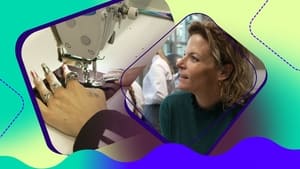
S5 Ep37
7.5
5th Nov 2023
We have a major shortage of professionals, especially in construction and healthcare. Yet children are not encouraged to learn a practical trade. It is rather the other way around: schools and parents push children to HAVO or VWO as much as possible. Even if children have other talents, working with their hands makes them happier and even now that you can earn more with practical professions. Why is that? And how do we change it? The cabinet also wants to change course in education, but Pointer encounters a problem: legislation.

S5 Ep19
7.5
30th Apr 2023
We need houses and developers like to build them in meadows. There is a beautiful polder ready for you near Alphen aan de Rijn. But is this Gnephoek the best place for 10,000 new houses, in a deep polder with weak soil? The province and water boards warn: if you build here, society will incur high costs in the future. But the municipality and the government are persevering and want the houses to be built. What interests do they have in going against the advice? In addition to the housing shortage, land purchases appear to be one of the arguments.

S6 Ep40
7.0
19th Dec 2024
Sick students who are at home for a long time, receive little or no education and over whom compulsory education officials have no control. They often wait for months for care or a suitable place at school. According to estimates, there are twenty thousand children who are not visible to municipalities. How is it possible that this group disappears from view? And why is it not possible to get these children back to education?

S6 Ep39
7.0
12th Dec 2024
Residents living near lily fields are concerned. Many pesticides are used in lily cultivation. These can pose health risks. Over the past year, local residents went to court in various places in the Netherlands. They tried to stop new lily cultivation, or to enforce that growers can only use a limited number of pesticides. In some places the judge agreed with local residents, but is the judge not doing what the government should actually do: protect local residents against health risks and provide clarity about what growers are and are not allowed to do?
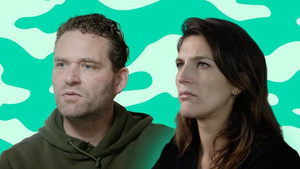
S6 Ep38
7.0
5th Dec 2024
Hundreds of soldiers who have been on missions come home with mental trauma. Not only do they have to deal with this themselves, but their families are also burdened with this. How is it possible that many families feel abandoned by Defense, while the Veterans Act states that they must also be cared for?
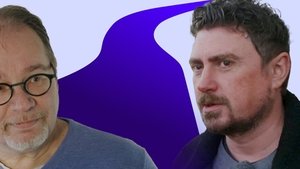
S6 Ep37
7.0
28th Nov 2024
The Twente canal Almelo-De Haandrik had to be prepared for larger shipping traffic. But after the work was completed in 2016, residents of about 400 homes around the canal suddenly suffered damage. The residents were sure: this had to be due to the work. Yet to this day, the province denies guilt in many cases. After years of wrangling with the government, Overijssel seems to be coming up with solutions. Recently, tailor-made solutions have been sought. That sounds good, of course, but isn't that way too late? The residents are completely exhausted by the battle.
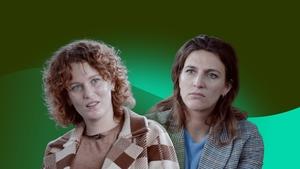
S6 Ep35
7.0
14th Nov 2024
In 2016, twelve of the largest mental health institutions entered into an agreement to stop seclusion, the forced solitary confinement of patients in a separate room, by 2020. Most of these organizations still segregate people every day. According to new figures from the Health and Youth Inspectorate, seclusion has even increased sharply. But how reliable are those figures? Patients and relatives of the Clinic and the Intensive Treatment Center talk about the traumas that sometimes caused months of solitary confinement. Is dignified care compatible with solitary confinement?

S6 Ep32
7.0
24th Oct 2024
Tenants in social housing are stuck. Often they can only move by exchanging homes. A senior who lives too large and wants a smaller house, for example because the children have left home, can then exchange with a young family that is looking for a place. This is legally allowed, sometimes even with retention of rent. And socially, this helps people find a more suitable home, who would otherwise have stayed in their old house. Tenants who want to exchange each other's front door keys only encounter all kinds of obstacles. For example, corporations regularly turn against an exchange. Why? Money often turns out to be a reason.
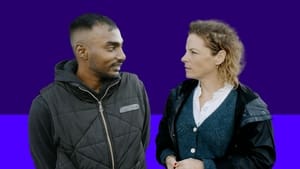
S6 Ep31
7.0
17th Oct 2024
More and more young people in the Netherlands are homeless. Vulnerable young people without a social network are often alone from the age of eighteen. Finding affordable housing seems almost impossible, so they wander from bank to bank, or even sleep on the street. There are plenty of support agencies to turn to, but they are often unable to offer what this group needs most: a roof over their heads. The government launched an action plan two years ago to change this. First a house, then other help, was the idea. But will that plan get off the ground?

S6 Ep30
7.0
10th Oct 2024
How do you prevent online scams? We all do it: online shopping. But it also often goes wrong. For example, you think you are ordering gold jewelry online from an older jeweler couple in the Netherlands who are retiring, but in reality you are getting plastic junk from China. Every day, 40 people report online trade fraud via a webshop. Can online fraud still be stopped? And who is responsible for doing this, the police, the judiciary or should we as consumers pay more attention?

S6 Ep27
7.0
19th Sep 2024
Are smartphones indispensable in the lives of young people? Or would they be better off without it? The mental health of young people, especially girls, has deteriorated alarmingly in recent years. This roughly coincides with the rise of smartphones and increasingly addictive social media, but does this also have a causal relationship or are other factors more important?
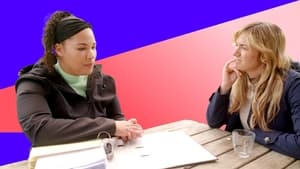
S6 Ep26
7.0
12th Sep 2024
Many young people still end up in debt. Experts point to the increasing number of digital temptations lurking for young people, such as the option to pay for things afterwards. Is the young brain resistant to such temptations? Once you have debt, it is difficult to get rid of it. Some municipalities are experimenting with buying off young people's debts in exchange for social compensation. For example, Thalissa (26) became debt-free after a number of difficult years. But not all municipalities are convinced of this method. How do we best help young people with debts?

S6 Ep24
7.0
20th Jun 2024
Who is responsible for the safety of women on public transport? We asked more than 7,000 women where they feel unsafe and en masse they pointed to stations and public transport. For fear of transgressive behavior, they close themselves off, avoid scary places or arm themselves. We also discovered that carriers do not map out how differently men and women experience safety. How do NS, ProRail and regional transport companies ensure that everyone feels safe? We spoke to experts and the women who use public transport.

S6 Ep23
7.0
13th Jun 2024
At the beginning of this year, one of the largest PFAS contaminations in the Netherlands was found in the water of the Jelsumervaart around Leeuwarden. The poison even exceeded the standard in some places by 900 times. How come this wasn't discovered earlier? And what does this mean for the people who live on the water or have a vegetable garden on the polluted canal? Are their concerns about PFAS in their fruits, vegetables and eggs justified? And what about the rest of the Netherlands: how is it possible that more and more private individuals are discovering that their own chickens lay eggs that contain PFAS?

S6 Ep20
7.0
23rd May 2024
The young farmer Burchart (25) is having a hard time. He does his best to save disappearing meadow birds, such as the godwit. But compensation for nature measures often does not outweigh the significant time investment and lower milk yield. What future prospects are there for young farmers who want to take nature into account? The drastic decline in the number of godwits in the Netherlands is indicative of the biodiversity crisis in rural areas. Who is willing to pay the bill for nature? The dairy processor, the supermarket or the consumer?

S6 Ep18
7.0
9th May 2024
Hissing, sexually explicit comments and annoying chasing: many women suffer from street harassment. We investigated where women feel unsafe in the Netherlands and received thousands of responses. Municipalities have been struggling for years to tackle street intimidation. What works? Information and campaigns or repression? As of July 1, street intimidation is punishable. A step in the right direction, but what about enforcement? We speak to victims, investigate the role of education and look at what boas and the police can do about this persistent problem.

S6 Ep16
7.0
25th Apr 2024
There is a good chance that you pay for CO2 compensation through your gas contract. Gas suppliers would have you believe that 'green' projects elsewhere in the world can eliminate your CO2 emissions, but most projects are based on hot air. Gas suppliers claim to be able to greenwash gas, but mislead consumers. Should the supervisor intervene? Meanwhile, a surprising Chinese newcomer is entering the market: the largest pork production company in the world, whose 'green' projects are already expected to 'make up for' air travel emissions.

S6 Ep14
7.0
11th Apr 2024
More than 700 planes overhead in one day. Winnie de Wit from Assendelft has been fighting for years to reduce the number of flights over her house, but so far without success. Local residents of the possible fourth approach route - which is drawn over parts of Utrecht and Gelderland - are concerned that they too will no longer be able to sleep peacefully or that the beautiful nature in their area will be disturbed.
S2 Ep5
6.0
27th May 2020
A group of Dutch, shady real estate dealers, real estate agents and entrepreneurs earns considerably during the Second World War to trade in Jewish real estate. Millions were involved with the purchase and sale of real estate of led jews. The real estate was - often for amounts that were far below the applicable market prices - purchased from the German occupier that the houses had expropriated. The transactions were kept by the German occupiers in the so-called Verkaufsbücher. Almost all books have been preserved. They contain the addresses and the names of the original owners, the brokers involved and the war copies, plus selling prices. And so a penetrating image of a criminal real estate circuit creates that gold earned money from expropriated, Jewish real estate. Were municipalities informed? Are they aware of the transactions? And how is the relatives? Are they compensated for expropriating the houses of their family?
S2 Ep7
6.0
21st Oct 2020
In the US and also in the Netherlands the elections are at the door. The battle for the voter is loose. And the key to the election victory? Your personal information. Data Driven Campaigning is the most modern way to win the voter's voice. With data techniques, presidential candidates and political parties try to find out as much as possible about you. That way they know how they can best reach you and how they can best take their message to you. Your voice as a voter and your dates are worth gold. But how are those private data collected and is that not very privacy sensitive? How is it deployed in campaigning? How are your own data used to influence your voting behavior?
S2 Ep8
6.0
28th Oct 2020
The American elections are a good reason for Twitter trolls to stir on social media. Trolls spread online misinformation to polarize and disrupted. Dutch trolls also mix and try to influence the American elections. What purpose do they do this with? And who are behind these troll accounts? Pointer dives into the world of the Online Trolls and looking for who these are trolls and what their motives are.
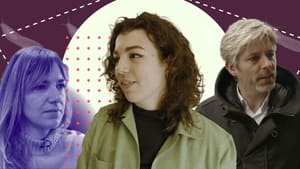
S5 Ep2
6.0
22nd Jan 2023
Homes with vermin and mold, sleeping in a tent on a campsite or spending hours on the train to attend a lecture. Students accept a lot because there is a major shortage of student housing. Dutch universities have grown enormously in recent years. Almost every course can be followed in English and the doors are wide open to students from all over the world. Student numbers are expected to continue to grow in the coming years. But who is responsible for a decent student room?
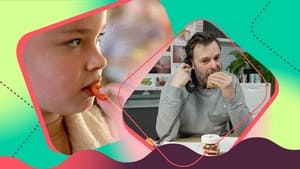
S5 Ep3
6.0
29th Jan 2023
Last fall, a shock went through the Netherlands when it turned out that children in our rich country were going to school without food. There was great outrage, volunteers started making sandwiches and The Hague released millions to feed children at school. What's behind this? How big is the problem of poverty and bad food among children? And what do schools think about the fact that they now have it on their plate?

S5 Ep4
6.0
5th Feb 2023
Anyone waiting for help with psychological suffering must have a lot of patience. There are currently 85,000 people on a mental health waiting list. In the meantime, the need for psychological help is only increasing. One in five Dutch people will experience mental difficulties at some point. Once it is your turn, you must receive a label, otherwise the care will not be reimbursed. And this compartmentalized thinking is meeting with increasing resistance. So the problem is all over the place and there are no easy solutions. There are more and more calls for a drastic overhaul of mental health care.

S5 Ep5
6.0
9th Feb 2023
There are countless jubilant stories about the Healy on Facebook and YouTube. A small device that you can clip to your sweater or shirt and is said to promote your health through frequency therapy. You can treat any complaint with it: from sleep disorders and pain to depression and anxiety. And not only that, it can also make you rich, the sellers promise. But behind all the promises there appears to be a shadowy world hidden. A network of traffickers that takes advantage of thousands of vulnerable people.
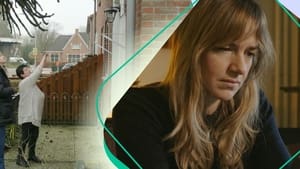
S5 Ep7
6.0
20th Feb 2023
Last year, the parliamentary committee of inquiry investigated how the people of Groningen could have ended up in earthquake misery. One thing is clear: the safety of Groningen residents has been ignored for years. But what about now? Thousands of residents are still waiting for their homes to be reinforced. But are unsafe houses being tackled urgently?

S5 Ep8
6.0
25th Feb 2023
Bus transport is under pressure, especially in rural areas. Almost empty buses are not profitable for the carrier, but the quality of life does depend on it. Because what if, as a student, you can no longer come home after a lecture? Some villages are no longer accessible by public transport in the evenings and on weekends, while a bus runs every five minutes in the city. This creates inequality of opportunity, experts say. Is it time for a lower limit? Does every village have the right to a bus line?

S5 Ep9
6.0
4th Mar 2023
In the Netherlands, 1.3 million people sometimes or regularly work at night. Wonderfully quiet, some say. But that will cost you your night's sleep. Because those who work at night are more likely to have sleep problems. The Health Council concluded in 2017 that night work is unhealthy and should be limited as much as possible. But will that work? And are companies doing enough to prevent complaints due to night work? Pointer delves into the world of the insomniacs. We set off in the middle of the night with truck driver Dion and visit former colleague Chiel, who said goodbye that night after years of loyal service due to chronic lack of sleep.

S5 Ep10
6.0
9th Mar 2023
To achieve the climate goals, diesel buses in regional transport are being replaced by green buses. At the same time, large parts of the Netherlands are becoming increasingly less accessible by public transport. In those places a car is essential to be mobile. What is the point of green buses if at the same time more and more people take the car? After all, it is rarely electric. How do we make public transport a fully-fledged alternative to the car again?
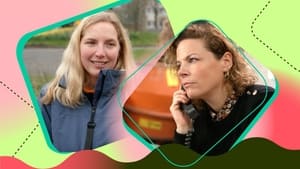
S5 Ep11
6.0
12th Mar 2023
The housing shortage is great and house prices are still high. And yet we are not building new houses at a high pace. The opposite happens: investors put their new construction plans on hold because it is now more convenient to wait a while. This is happening all over the country. The houses that are so desperately needed - affordable rental housing for teachers and healthcare staff - are particularly affected. How is it possible that it is better for companies not to build than to build? And how is the government going to solve this? The government wants to add almost one million houses by 2030. Is the housing shortage getting even worse?

S5 Ep12
6.0
18th Mar 2023
We are in the city of Groningen, where some tenants have been paying too much for years because the energy label on their home is incorrect. Who is responsible for the incorrect energy labels on hundreds of homes? Is there intent at play? And why is it so difficult for (former) tenants to get their money back, even if it is clear that something is wrong? We go to the city looking for answers.

S5 Ep13
6.0
26th Mar 2023
Young people are ending up behind bars at an increasingly young age and the crimes for which they are imprisoned are becoming more serious. A criminal career sometimes moves very quickly, from distributing drugs to committing a murder for hire. The impact of these crimes is enormous for victims, surviving relatives and society. The government makes millions available, but only a few municipalities benefit from this. Pointer investigates the approach to youth crime. How effective is that? Does the tough approach to punishment and repression work, or should we help young people with their problems?

S5 Ep14
6.0
2nd Apr 2023
The final test is coming again for group 8. That means pale faces, short fuses and stomach aches, teachers say. But it's not just the final test that causes stress. Teachers also see stressed children around the tests in groups 5, 6 and 7. These tests are included in the school advice for secondary education. To influence this, children train outside of school. Parents buy tests via the internet or send their offspring to test training. Why do we attach so much importance to those tests? Doesn't our testing culture create unequal opportunities? And can it be done differently?

S5 Ep15
6.0
6th Apr 2023
The 'red flags' for intimate partner murder have been known for decades. For example, you are seven times more likely to die if your partner has strangled you before. Yet the Netherlands is often unable to provide help in time, despite all kinds of risk assessments and local initiatives. More than half of female victims are still killed by their partner or ex, with all the attendant signs. Isn't murder a priority if it happens behind the front door?

S5 Ep16
6.0
8th Apr 2023
Animal ambulances fear a bird flu pandemic. They already clean up dozens of infected dead wild birds every day, often at their own expense. But what if the virus continues to spread? Nearly six million chickens have already been culled and more and more mammals are becoming infected with the virus. Experts warn: bird flu could become a danger to public health. But who is responsible for all those wild birds with bird flu? And who will pay for the costs?

S5 Ep18
6.0
23rd Apr 2023
While 24-hour care becomes increasingly demanding, many parents choose to keep their child with severe multiple disabilities at home. Parents find the care in regular institutions substandard and often find themselves on long waiting lists. Researchers, healthcare professionals and administrators recognize the problems, but cannot arrive at a clear solution.

S5 Ep20
6.0
3rd May 2023
After the Second World War, many synagogues and Jewish cemeteries were lost. Since 2020, Pointer has been conducting research into expropriated and resold Jewish real estate during the war and came across twenty transactions involving Jewish religious heritage. These buildings and cemeteries are rarely visible in the current street scene: synagogues have been demolished and cemeteries covered with asphalt. In some villages and towns, centuries of Jewish history are therefore barely visible. What role have municipalities played in this?
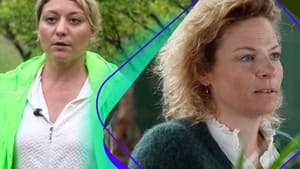
S5 Ep26
6.0
1st Jun 2023
Greenhouse gas emissions must be drastically reduced if we are to achieve the climate goals. But what if it is much easier and cheaper not to reduce your emissions but to offset them? Pointer delves into dubious projects with which municipalities 'compensate' for their natural gas consumption, such as a Turkish wind farm, Indian hydroelectric power station and a coal-fired Chinese steel factory. Experts see many problems in this market. The CO2 certificates are far too cheap, human rights are being violated and there are too many perverse incentives in an unregulated market.

S5 Ep27
6.0
13th Jun 2023
Women who are victims of domestic violence, sexual exploitation or sexual violence are hardly seen by the police and social services, such as Veilig Thuis. De Balie Live Journalism investigated where they end up and what help they can count on.
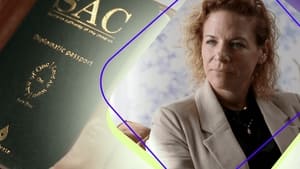
S5 Ep34
6.0
19th Oct 2023
Autonomous or sovereign citizens believe that Dutch laws and regulations do not apply to them and that the government should not exercise power over them. This means that they pay less or even no tax, with all the consequences that entails. Pointer investigates the autonomous dream, analyzes conversations in chat groups and speaks to autonomous people themselves. One of them offers paid courses to become autonomous, another ended up in a financial nightmare. How can people declare themselves autonomous and what are the consequences?

S5 Ep40
6.0
19th Nov 2023
The e-bike is hip. It has become an indispensable part of the cycle path and, especially since the arrival of the fat bike, more and more young children are cycling on it. Is that wise? Can children's brains handle the speed of an e-bike? Pointer takes children and fat bikes onto the cycle path and tests the consequences of the e-bike for the safety and health of young people. Should we protect young people against the risks that the technological progress of cycling entails or should we teach them to deal with it?

S5 Ep41
6.0
26th Nov 2023
One in five Dutch households faces financial problems. To reduce that number and prevent people from getting into trouble due to electronic debts, municipalities have had to contact their residents since 2021 with payment arrears on rent, energy, water and health insurance. But are those signals coming in properly? Do words work effectively? And are young people sufficiently exposed to beginning comprehension?
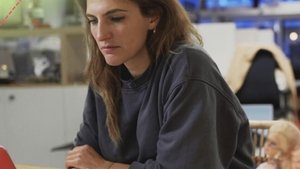
S5 Ep46
6.0
24th Dec 2023
Hot flashes, muscle pain, mental problems... More attention is finally being paid to menopausal complaints. Famous Dutch people make podcasts and books about it, and it is even discussed on TV and social media. But what is that like in the workplace? In the Netherlands there are approximately 1.9 million female employees aged 40 and over. An estimated 315,000 of them are in perimenopause (the period before your periods stop). And for at least half (173,000 women), the complaints affect their work. Can women talk about it? How do employers and (company) doctors interact? And aren't complaints quite easy to treat?
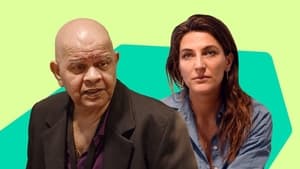
S6 Ep22
6.0
6th Jun 2024
Since the Care and Coercion Act came into effect in 2020, as little 'involuntary care' may be provided in dementia care. This also means that people with dementia who do not pose a danger to themselves or those around them should not simply be locked up. And so some nursing homes choose to open the door. People with dementia who go where they want as much as possible, even if they live in a nursing home. Is that possible or is it too big a risk? How do family and healthcare institutions deal with this?
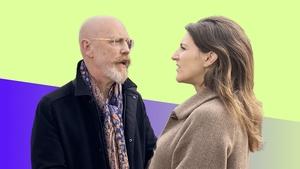
S6 Ep33
6.0
31st Oct 2024
By 2035, everyone must attend a regular school in his or her own neighborhood, including children who need extra support or care. But can regular schools offer this? More and more children are at home and waiting lists for special schools continue to increase. Damian (12) has also been at home for a few weeks. For years his autism went unnoticed, meaning he received no support. The transition to seventh grade was the last straw, Damian dropped out. He now has to wait for a place in special education.
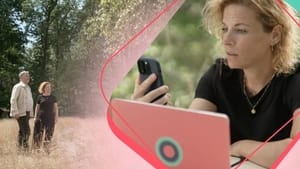
S5 Ep30
6.3
24th Sep 2023
Citizens are shocked when the municipality of Westerveld creates a cycle path through the middle of a nature reserve. This construction is allowed because a natural test states that there will be no damage. But this key appears to rattle and that happens more often, Pointer discovers. While these types of nature tests determine whether housing construction, festivals or even the insulation of your house can continue. Who makes those tests? Who pays for it? And what if the content is incorrect? Pointer delves into the world of testers and discovers striking things. For example, you can already make a report after a course of a few days and resistance is sometimes very difficult.
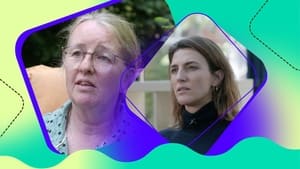
S5 Ep36
6.3
29th Oct 2023
Combining informal care and work: it is a tough and sometimes almost impossible combination. Many informal caregivers therefore work less or report sick, research shows. The calculations are that 18 percent of absenteeism due to illness is related to informal care. It is therefore extra important for employers to ensure that their informal caregiver employees remain standing. But are employers ready for that? Are the care leave arrangements adequate? Who will ultimately pay for the aging society, in which we increasingly have to take care of each other?

S6 Ep25
6.3
5th Sep 2024
At the start of a new school year, many schools are uncertain whether there will be a teacher for every class. Every little bit helps and lateral entrants are desperately needed. Yet these career changers have a lot of criticism about their trajectory: endless assignments and reports, too little time and money, no good guidance and a general lack of customization. How is this possible in light of the major staff shortages? More than half of school leaders also believe that this route, which is intended to attract more people to education, can and should be improved.
S1 Ep1
7.0
11th Apr 2019
Police logger Jan-Willem goes into the mistake ... again. Despite the instructions for the use of social media by police, there are still people traceable in videos of the Vlogger. And with that he lays private data from citizens on the street. Pointer investigated the traceability of people in videos of police logger Jan-Willem and it shows that the popular agent rebreeds several privacy rules. That is remarkable, because following earlier research, the police proposed guidelines for improving social media posters. Now it appears that after the tightening of the rules in certain 22 cases that are traceable to a person are visible and audible in videos of Jan-Willem. Social media is indispensable in the police. You see it at all arguing: a detection message via a Twitter or Facebook message.
S1 Ep2
8.0
26th Jun 2019
In collaboration with Reporter Radio and Follow the Money, Pointer reveals that there are several healthcare institutions in the Netherlands that achieve extreme profits. The accounts look suspicious. How is it possible that these businesses earn so much money? Many of those companies are in home care. Is the care that these companies must deliver sufficient or is there the back of people who needed home care earned money?
S1 Ep3
7.0
25th Sep 2019
In June 2019, DataLatform Pointer revealed in collaboration with research site Follow the Money and Reporter Radio that there are care institutions that get extreme profits. After an analysis of the annual figures for 2017, it turned out that 97 large healthcare companies were jointly made for more than fifty million euros in profit. That amounts to more than twenty percent of turnover, while at most three percent are common within mental health care, care for the disabled and home care. These profits may have been unlawfully achieved. The annual accounts of these institutions are rarely checked, allowing shareholders to pay for millions of Euros to care money. These 'care cowboys' would perhaps even ride out huge profits at the expense of supplying care to people who need. In the second broadcast on mega ministers in healthcare, the DataTeam of Pointer once again examines the annual accounts of these types of companies.
S1 Ep4
6.5
29th Nov 2019
Behind a simple e-mail in the inbox of Pointer appears to be a network of lighting sites, mailbox companies and more than a hundred victims around the world. Via a wirwar to NEP accounts, the track is followed that leads to two Danish cheaters, which abuse people from people.
S1 Ep5
7.0
16th Dec 2019
Almost a hundred care companies make structurally high profit in the healthcare sector. The DataTeam of Pointer, together with Reporter Radio and Follow the Money, examines why municipalities pay for tens of millions of euros in care money to these companies within the framework of the Social Support Act. Why do municipalities do not seize as soon as it becomes clear that this money is not spent on good care? Municipalities must ensure that the money intended for elderly and disabled care is used properly. Why do municipalities do business with companies that use the money for other things? And is it maintained?
The first episode of Pointer aired on April 11, 2019.
The last episode of Pointer aired on November 16, 2025.
There are 196 episodes of Pointer.
There are 7 seasons of Pointer.
Yes.
Pointer is set to return for future episodes.